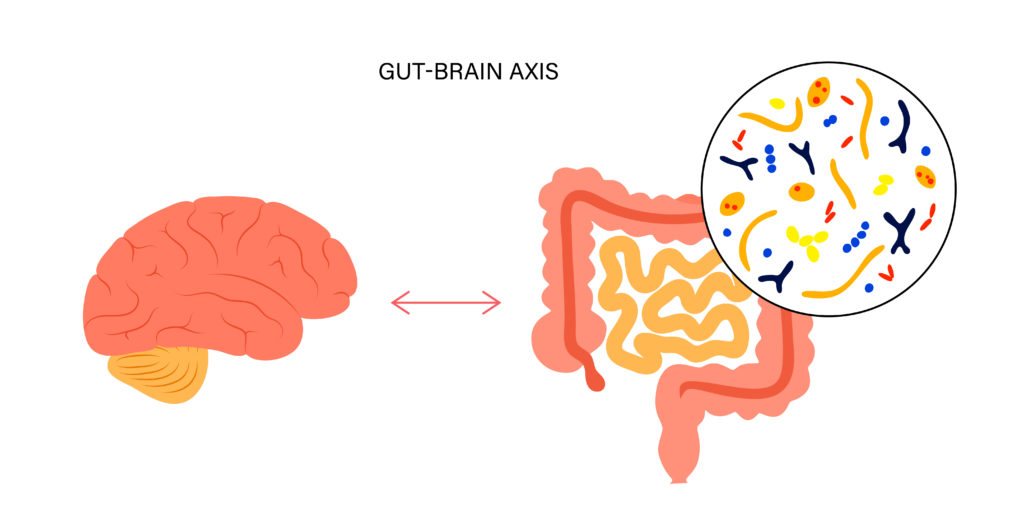Quick Hits
Daily brief research updates from the cognitive sciences

The gut-brain axis
Just after publishing the article on Serotonin and stating that the gut and brain’s serotonin systems can be considered separate entities, out comes a piece of research to show that they are not separate entities.
Indeed, it is known that there is a gut-brain connection that I have also reported on multiple times previously. But researchers are still often in the dark as to how and in what different ways the gut and brain communicate with each other. These researchers at Flinders University developed a new neural tracing technique that helped to investigate this.
They found that the enterochromaffin cells that line the gut and are known to responds to and release neurotransmitters based on stimuli from what is in the gut, communicate to nerve endings. This, through process of diffusion (they are not directly connected to the central nervous system), stimulate pathways that go to the spinal cord and brain.
This therefore strengthens our knowledge of how this happens but also to expand healthcare into more holistic and positive (and potentially more effective and cheaper ways). This suggests, you can eat yourself to better mental health, to a degree at least.

Andy Habermacher
Andy is author of leading brains Review, Neuroleadership, and multiple other books. He has been intensively involved in writing and research into neuroleadership and is considered one of Europe’s leading experts. He is also a well-known public speaker speaking on the brain and human behaviour.
Andy is also a masters athlete (middle distance running) and competes regularly at international competitions (and holds a few national records in his age category).
Reference
Kelsi Nicole Dodds, Lee Travis, Melinda A. Kyloh, Lauren A Jones, Damien John Keating, Nick J Spencer.
The gut-brain axis: spatial relationship between spinal afferent nerves and 5-HT-containing enterochromaffin cells in mucosa of mouse colon.
American Journal of Physiology-Gastrointestinal and Liver Physiology, 2022;
DOI: 10.1152/ajpgi.00019.2022
More Quick Hits
Unique Social Genes in Human Beings
Quick HitsDaily brief research updates from the cognitive sciences ne differentiating factor with human beings is our pro-sociality. This means we are a social species, and this sociality is seen in our ability to empathise, be socially tolerant,...
Want to Live Longer? Be Optimistic!
Quick HitsDaily brief research updates from the cognitive sciences e probably all know some people who are particularly pessimistic - always putting a negative side to things and expecting the worst outcomes. We probably also know some people who...
How Having Had COVID-19 Negatively Impacts Performance at Work
Quick HitsDaily brief research updates from the cognitive sciences ’m sure we’re all aware of the various negative aspects of having contracted COVID-19 such as long COVID but also the brain fog that seems to have been a feature that many people...
Narcissistic Leaders Block Knowledge Flow and Cooperation
Quick HitsDaily brief research updates from the cognitive sciences arcissism is considered one of the three dark-triad traits and something that has been reported as being common in senior leaders. The important question is can and does this hinder...
The Science of Exposing Liars
Quick HitsDaily brief research updates from the cognitive sciences he one place that we can consistently catch people lying is in job interviews. And the question has long been how do you catch out these liars? The answer is you need to outsmart...
High Traffic Noise at School, Slower Cognitive Development
Quick HitsDaily brief research updates from the cognitive sciences ho would have thought that traffic noise could impact cognitive development of kids? Well according to this recent piece of research it can. Are you sure? Well, these researchers...






